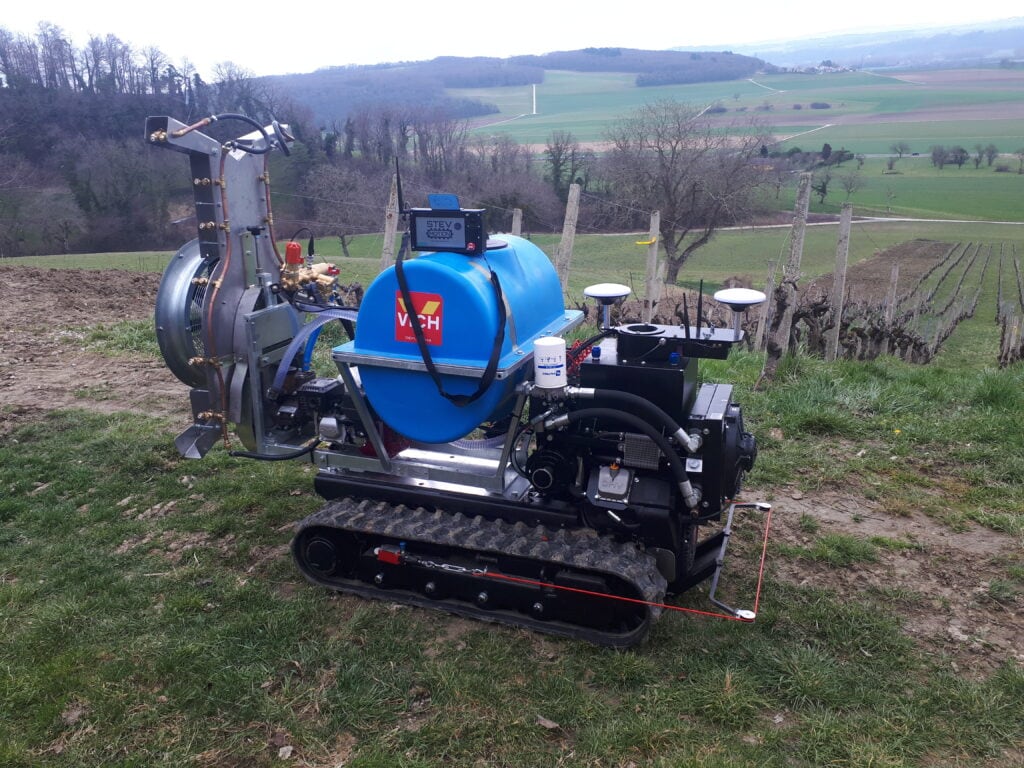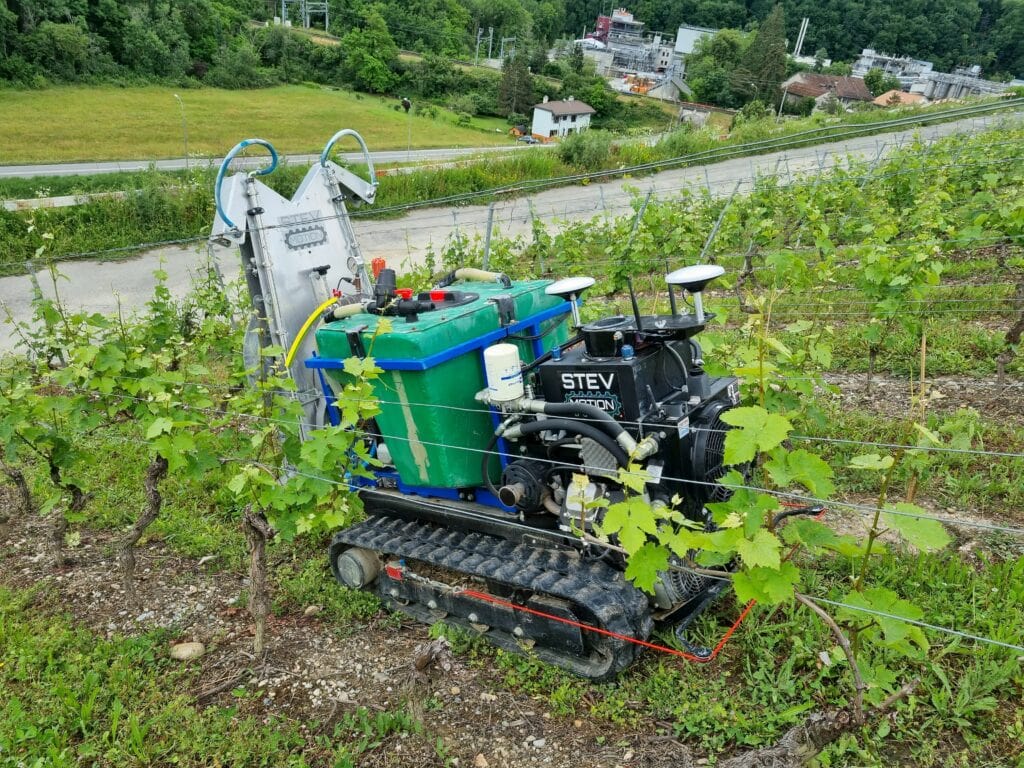Robot: Vineatrac
Task(s): Spraying, weeding and soil work in vineyards
Development start: 2019
Pricing: €55,000 euro for the entire machine (US $59,587 according to the exchange rate of 06-11-2024)
Manufacturer:


Description
Vineatrac is a fully autonomous and highly versatile tractor designed for vineyard work. Its exceptional agility makes it ideal for challenging environments, such as vineyards with slopes or narrow rows. According to the manufacturer, Vineatrac delivers significant benefits in terms of safety, quality, and cost-efficiency. It has been successfully adopted by a wide range of winemakers.
Drive train type
27 HP gasoline engine, hydraulic transmission. Max speed up to 5 km/h and max slope up to 60%.
Characteristics
Vineatrac is compatible with a Category 1 three-point hitch. It features a hydraulic PTO delivering 30 L/min (~15 hp available through the PTO) and includes one hydraulic power outlet (30 L/min at 150 bar), as well as four double-acting hydraulic outlets (10 L/min at 180 bar). All of these interfaces can be controlled either electronically or manually using the remote control.
Navigation system
The navigation system primarily utilises GPS RTK and Lidar technology. Field mapping is required prior to operation. Using its proprietary software, the system is set up to manage each row’s inlet and outlet, as well as handle complex U-turns. Once configured, the software takes over, using its sensors to control the vehicle. Safety is ensured through Lidar and a safety wire surrounding the vehicle.
Specifications
| Name robot | STEVmotion Vineatrac |
| Dimensions | Length 1.40m, width 0.80m, height 1m |
| Turning radius | Zero-turn |
| Weight | 420 kg |
| Energy source | Combustion |
| Energy stock/range | 6 hours with one tank of 20 litres of gasoline |
| Output capacity | Depends on the type of task. For spraying it is 1.2 hectare per hour |
| Navigation system | GPS RTK and Lidar |
| Pricing | Depends on the type of task. For spraying it is 1.2 hectares per hour |
| Availability (countries) | Switzerland and close regions |
| Units operational (total end 2024) | 6 |
